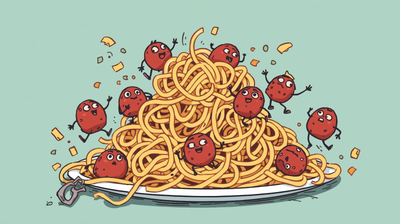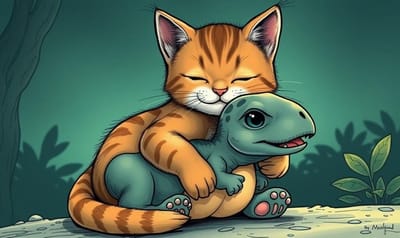Who would Marty Crane have voted for?

I've been watching a lot of Frasier, probably the best written sitcom in the history of television, and it's not lost on me that Marty Crane, the beloved live-in father played by the prolific John Mahoney, would have likely been a Trump voter. There are several episodes in which his conservative beliefs and background in law enforcement grate at the more liberal sensitivities of his yuppie, sherry-sipping sons.
In one episode, Marty endorses a MAGA-esque local politician on a law and order soapbox by filming a commercial showing off his liquor store gunshot wound. Frasier in turn does the same for a liberal candidate (whom he ends up accidentally outing as a space alien abductee on his live radio show the morning of the election!) Breaking news: he loses the race. The whole thing is hilarious and, while it's not real life, this and other episodes of the show are reminiscent of a time when it was just an unquestionable part of life to squabble with family members over wildly different political views.
This tradition seems to have eroded in recent years, partly due to the pandemic and legitimate health concerns related to vaccination, but also because of an overly individualistic mental wellness culture that conflates uncomfortable discourse with friends and family with toxicity. Whatever the reason, us no longer fighting at the dinner table is to the detriment of our collective power, and ultimately our feelings of connectedness and belonging.
I read something the other day though that made me feel hopeful that people are reconsidering this destructive algorithm-fueled culture of estrangement. In his recent op-ed in the New York Times, David Litt, author of It’s Only Drowning: A True Story of Learning to Surf and the Search for Common Ground, shares the evolution of his relationship with his brother-in-law Matt, a right-leaning anti-vaxxer he found virtually nothing in common with during the early days of their relationship. He would keep Matt at arm's length during their brief social encounters. That is until he became interested in surfing and discovered that Matt was the only person within reach who was skilled in the sport.
So they began hanging out. Naturally, topics came up. They swapped opinions and news sources. They continued to wince at each other's takes, but slowly, the wall came down. Neither of them lured the other to their side. That was never the plan. The only thing on the agenda was surfing. Soon enough, that shared interest and the feelings of connection that ensued overpowered their still significant political differences.
I like how David captured his and Matt's ability to hold these contradictions in their relationship while learning how to enjoy each other's company.
Our differences are meaningful, but allowing them to mean everything is part of how we ended up here. When we cut off contacts or let algorithms sort us into warring factions, we forget that not so long ago we used to have things to talk about that didn’t involve politics.
Here is the full gift-linked piece 🔗
I experience this tension all the time at work. The five mile radius in which most of my life takes place, where most of my work happens in urban education, is well-peopled by Trump voters. (I don't say "supporters" because it would be an oversimplification. Things are fluid.) If I distanced myself from these people on the basis of unshared beliefs, it would seriously damage the work we do together in service of youth. Like with David and Matt, conversations about our shared work, passion, and best practices dominate our interactions, the grounded humanity of which opens the door and allows us to discuss other things.
I was talking about this with a cherished colleague today at lunch and our conversation reminded me of these words by the American poet Martín Espada.
No change for the good ever happens without being imagined first, even if, at the moment we imagine this great change, it seems absolutely impossible. History teaches us, too, that we are the agents of this great change. It doesn’t come from the White House; it comes from our house.
This kind of collaborative discourse at work and in our homes takes patience, humor, and looking past a person's defenses. I believe these conversations deserve to have a place at home as long as there is baseline safety in relationships there. I don't think political disagreement on its own counts as "unsafe," even if things seem more divided and insane than ever. What does strike me as unsafe is yielding the battleground of painful discourse, understanding, reconciliation, and forgiveness to darker forces.
Marty Crane would agree. And then he'd offer you a Ballantine, let you pet Eddie, and show you his gunshot wound.
Link Pickles 🥒
Unbreaking.org is the labor of love of a group of volunteer researchers and writers painstakingly tracking and documenting how the Trump administration is dismantling our democracy. This is an essential resource for standing on business in your uncomfortable conversations with family and friends.
The Etymology Nerd Adam Aleksic explains why opting out of phone use entirely, a choice steeped in "reality privilege," is problematic for collective awareness and action.
I enjoyed Mark Monteiro's punchy take on the ethical conundrum that continuing to work in tech is presenting for (mostly good) people. His opinion isn't...friendly. It's not wrong, either.
Small True Things is a documentary audio project that highlights the nuances of high schoolers' lives in an effort to build a healthy and informed school community. As with all good things, this starts with deep listening, and Samantha Broun and Erica Heilman are masters of their craft.
Sometimes I feel lost in a sea of men creating online. Luckily Dorothy Neagle reminds us that – "The act of creation is our birthright, as well as a form of consciousness, reclamation, and resistance." Dorothy's first book of poems, Imagine a Woman, will be out on June 9th, 2026.
Let's end with a laugh. The "let's open/takes place in a restaurant" episodes of sitcoms are always my favorite. Here's a gut-busting sequence from the episode of Frasier where he and his brother open Les Freres Heureux (The Happy Brothers). 👨🏼🍳🤵🏼♂️
No spam, no sharing to third party. Only you and me.






